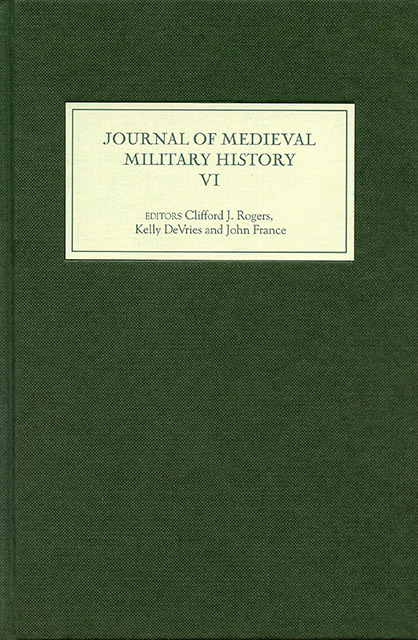Book contents
- Frontmatter
- Contents
- 1 Cultural Representation and the Practice of War in the Middle Ages
- 2 The Brevium Exempla as a Source for Carolingian Warhorses
- 3 Infantry and Cavalry in Lombardy (11th–12th Centuries)
- 4 Unintended Consumption: The Interruption of the Fourth Crusade at Venice and Its Consequences
- 5 Light Cavalry, Heavy Cavalry, Horse Archers, Oh My! What Abstract Definitions Don't Tell Us About 1205 Adrianople
- 6 War Financing in the Late-Medieval Crown of Aragon
- 7 National Reconciliation in France at the end of the Hundred Years War
6 - War Financing in the Late-Medieval Crown of Aragon
Published online by Cambridge University Press: 10 March 2023
- Frontmatter
- Contents
- 1 Cultural Representation and the Practice of War in the Middle Ages
- 2 The Brevium Exempla as a Source for Carolingian Warhorses
- 3 Infantry and Cavalry in Lombardy (11th–12th Centuries)
- 4 Unintended Consumption: The Interruption of the Fourth Crusade at Venice and Its Consequences
- 5 Light Cavalry, Heavy Cavalry, Horse Archers, Oh My! What Abstract Definitions Don't Tell Us About 1205 Adrianople
- 6 War Financing in the Late-Medieval Crown of Aragon
- 7 National Reconciliation in France at the end of the Hundred Years War
Summary
Medieval soldiers would agree wholeheartedly with the political maxim which had grown hackneyed by the time of the Renaissance in its assertion that “money constitutes the sinews of war.” Medieval sovereigns often came to the painful conclusion that warfare required only three things: “money, more money, and yet more money;” they would also agree that its predictable end was the inexorable “increase in taxes.” To explore in very specific terms how these realities were managed by and simultaneously affected medieval sovereigns, this paper will focus on the family of realms of eastern Spain known as the Crown of Aragon during one of the longest and most expensive conflicts of its history known by later historians as the War of the Two Pedros (1356–66).
I
As early as the twelfth century, the fiscal exigencies of war acted as a powerful catalyst for the development of treasuries across Europe. In the Low Countries, England, and France, body servants to the sovereign inexorably took on a wider public role as collectors of war taxes and finally as members of an emerging treasury. As conflicts became more extended and costly in the late thirteenth and fourteenth centuries, treasury officials in both England and France grew expert in squeezing taxes and subsidies from increasingly restive populations – all in the name of the “evident necessity” and “common good” of the realm. After several decades of growing royal insolvency and desperate bureaucratic efforts to address it, all sources of war funding began to dry up in a firestorm of opposition from many different groups, caused by lengthening episodes of warfare. Far from totally rejecting the expensive martial policies of their sovereigns, the English Parliament and French Estates General, distrusting royal officialdom, began to assert their rights to control the fiscal course of such conflicts.
The global cost of the decades of fighting associated with the Hundred Years War has been estimated at over £8,000,000 for England and at a much higher level for the French. Despite the fiscal creativity and ruthlessness royal officials in both states utilized to rake money into the overburdened treasuries of their sovereigns. The bottom line was more favorable to the English, however, because of strong monetary policies which monarchs down to Richard II (1377– 99) found difficult to overturn, despite a growing deficit.
- Type
- Chapter
- Information
- Journal of Medieval Military HistoryVolume VI, pp. 119 - 148Publisher: Boydell & BrewerPrint publication year: 2008
- 2
- Cited by



